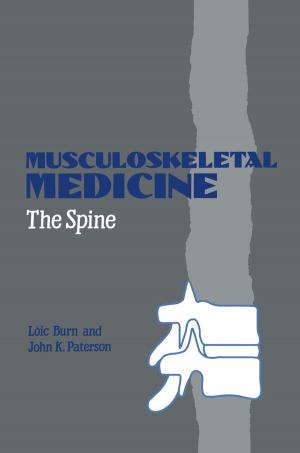The Hyperlipidaemia Handbook
Nonfiction, Health & Well Being, Medical, Specialties, Family & General Practice, Internal Medicine, Cardiology| Author: | M. Godfrey | ISBN: | 9789401138987 |
| Publisher: | Springer Netherlands | Publication: | December 6, 2012 |
| Imprint: | Springer | Language: | English |
| Author: | M. Godfrey |
| ISBN: | 9789401138987 |
| Publisher: | Springer Netherlands |
| Publication: | December 6, 2012 |
| Imprint: | Springer |
| Language: | English |
1 Shepherd Coronary artery disease, the most important cause of death in the United Kingdom, kills about 200 000 Britons each year. Many victims are struck down out of the blue and in the prime of an active working life. Others survive the fIrst attack but are so debilitated by it that they are compelled to fall back on the efforts of their family and the Social and Health Services for their future survival. The epidemic proportions of the problem and the burden which it places on the community at large has led many health care professionals to reassess their attitudes to heart disease prevention. In the past, the clinician's attention has been directed primarily at the treatment of established ischaemic heart disease rather than focussing on forestalling its appearance by attempting to tackle those life-style habits within the population which appear to predispose to it. A number of recent developments make this approach hard to sustain. First, there is now convincing evidence that action taken against cigarette smoking, hyper tension and hypercholesterolaemia offers signifIcant protection to the individual. Secondly, effective and apparently safe antihypertensive and lipid-lowering agents have recently become available to the practicing clinician. Thirdly, developments in computer technology and laboratory equipment manufacture have brought the measurement of coronary risk factors right into the primary health care setting. And, last, but not least, political attitudes towards prevention now favour the enthusiastic general practitioner with an interest in anticipating and averting the development of degenerative diseases like atherosclerosis.
1 Shepherd Coronary artery disease, the most important cause of death in the United Kingdom, kills about 200 000 Britons each year. Many victims are struck down out of the blue and in the prime of an active working life. Others survive the fIrst attack but are so debilitated by it that they are compelled to fall back on the efforts of their family and the Social and Health Services for their future survival. The epidemic proportions of the problem and the burden which it places on the community at large has led many health care professionals to reassess their attitudes to heart disease prevention. In the past, the clinician's attention has been directed primarily at the treatment of established ischaemic heart disease rather than focussing on forestalling its appearance by attempting to tackle those life-style habits within the population which appear to predispose to it. A number of recent developments make this approach hard to sustain. First, there is now convincing evidence that action taken against cigarette smoking, hyper tension and hypercholesterolaemia offers signifIcant protection to the individual. Secondly, effective and apparently safe antihypertensive and lipid-lowering agents have recently become available to the practicing clinician. Thirdly, developments in computer technology and laboratory equipment manufacture have brought the measurement of coronary risk factors right into the primary health care setting. And, last, but not least, political attitudes towards prevention now favour the enthusiastic general practitioner with an interest in anticipating and averting the development of degenerative diseases like atherosclerosis.















